Around the world over 100 million women take synthetic hormones to prevent unwanted pregnancy and there can be no doubt that since such methods of contraception were first introduced in the 1960s, they have afforded women complete reproductive autonomy.
However, there is an ongoing conversation about whether or not hormonal contraception causes mental health side effects such as depression. Several studies have now suggested that there is indeed a correlation between taking it and experiencing depression, and even suicide but the answer you will get when you ask ‘is my pill making me depressed’ really depends on who you’re speaking to.
Perhaps one of the most well-known pieces of research are the studies which were conducted by the University of Copenhagen’s Professor Øjvind Lidegaard. In 2016, he released a report which found that different types of hormonal contraception - such as the pill, the mirena coil, the implant and the nuva ring – were linked to depression. The study tracked one million Danish women between the ages of 15 and 34 over a period of 13 years and found that those taking hormonal contraceptives were 70% more likely to experience depression than those not taking them. Last year, he released new work which looked at the same number of women’s medical records and found that there was an increased risk of suicide.
It’s imperative to point out that hormonal contraception works well for many women, with them experiencing few to no side effects. As The Debrief’s Mad About The Pill investigation pointed out last year, the problem is that those who do experience mental side effects are too often quickly dismissed by doctors because the evidence which suggests a concrete link between hormonal contraception and depression or suicide is still relatively new.
Adding to what feels like a growing body of evidence is a study which was published only last week in the peer-reviewed medical journal, Plos. The research was conducted by Swedish scientists who, in a similar way to Professor Lidegaard in Denmark, were able to look at a large sample size of 800,000 Swedish women.
So, what did they find? Put simply, they found that women taking hormonal contraception were more likely to also be taking psychotropic drugs. ‘Psychotropic drugs’ refers to any medicine which is used to treat someone’s mental health. Of the women, the study recorded who were taking hormonal contraception 3.7% were also taking medication for their mental health, meanwhile among the women not taking hormonal contraception only 2.5% were taking medication for their mental health.
Where does all of this leave us? Professor Charlotte Wessel Skovlund, the lead author of the most recent research paper to come out of Denmark, has saidthat she believes ‘hormonal contraception can have a direct effect on the brain’. Indeed, as her colleague Professor Lidegaard told * The Debrief *in response to Mad About The Pill ‘we have for a long time known that oestrogen generally improves women’s moods while, on the other hand, progesterone depresses women’s moods’ he added. ‘And that is why some women (even if they aren’t taking hormonal contraception) experience mood changes in their mood during the menstrual cycle when their progesterone is highest. All types of hormonal contraception are progesterone dominated – so they include much more hormones which have the same effects as progesterone and oestrogen – therefore it’s not surprising at all that these hormonal contraceptives can cause depression. It’s completely in keeping with our basic understanding of how sex hormones influence the mood.’
With every study that confirms a potential link between hormonal contraception and mental health problems, the likelihood of the issue being taken more seriously by doctors increases. However, until multiple studies have produced the same findings it is unlikely that any guidelines will change and so, for now, if you go to your doctor and say that you think your pill/coil/implant is causing you to feel depressed there is no guarantee that they will agree with you.
That said, the general consensus is that doctors should look out for depressive symptoms in patients who are using hormonal contraception. As David Brent MD writes in the American Journal of Psychology in response to this latest Swedish study doctors ‘should routinely inquire [sic] about the use of hormonal contraceptives in their female patients and chart the temporal relationship of hormonal contraceptive use against depressive symptoms’.
Unfortunately, as Professor McGregor Anne McGregor told *The Debrief *as part of the Mad About The Pill investigation, not all GPs will be aware of the latest research. ‘Not all GPs are trained in sexual and reproductive health care’ she said ‘they have to do an extra qualification to gain very specific experience. For example, most weeks at Barts we are training GPs in this additional training for contraceptive prescribing – so not every GP will know this or even be interested in it, which can make it more difficult for young women – particularly as they don’t feel confident in saying to their doctor “look this pill just isn’t suiting me”.’
**READ MORE: The Debrief Investigates - Hormonal Contraception And Mental Health **
Debrief Mad About The Pill Stats
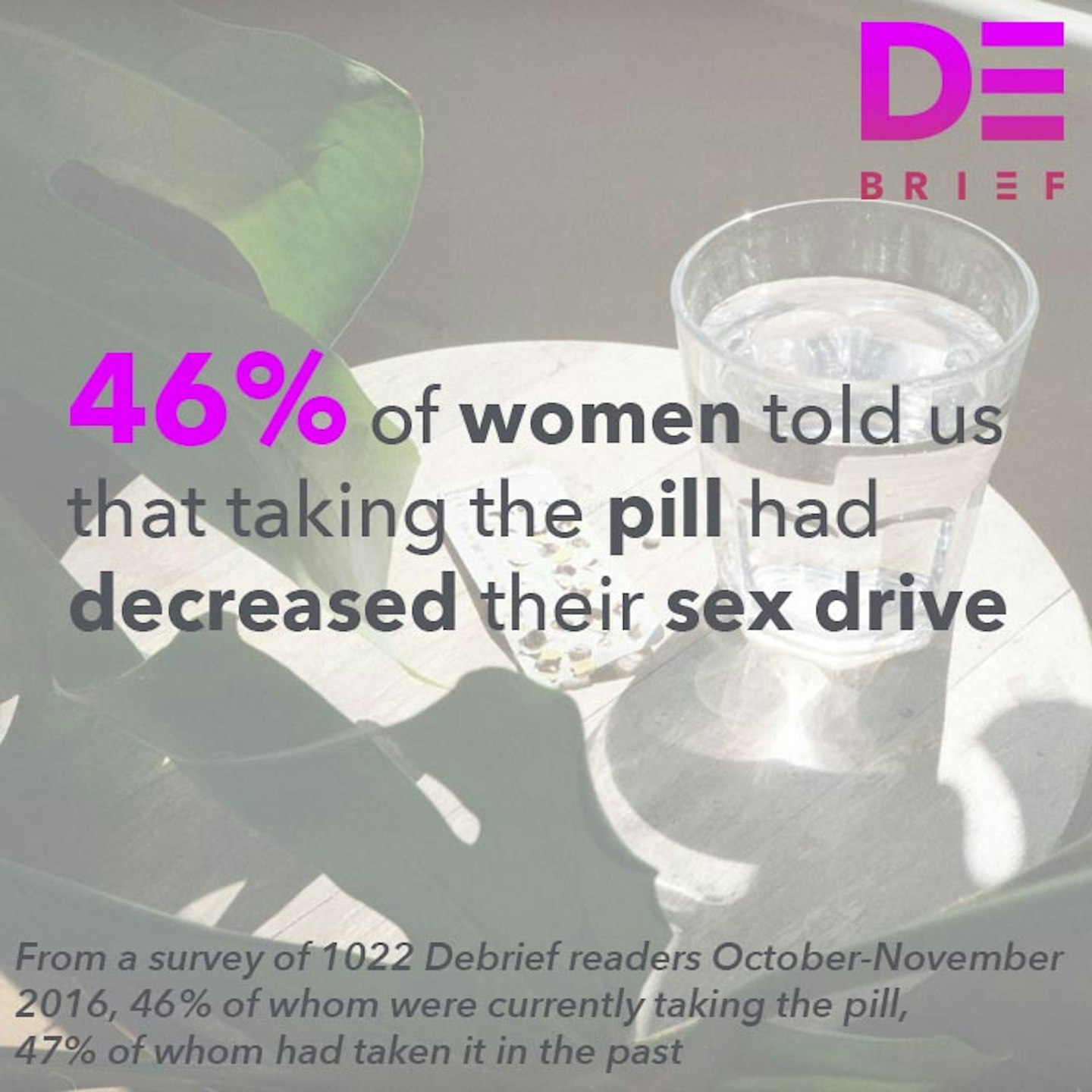 1 of 9
1 of 9Debrief Mad About The Pill Stats
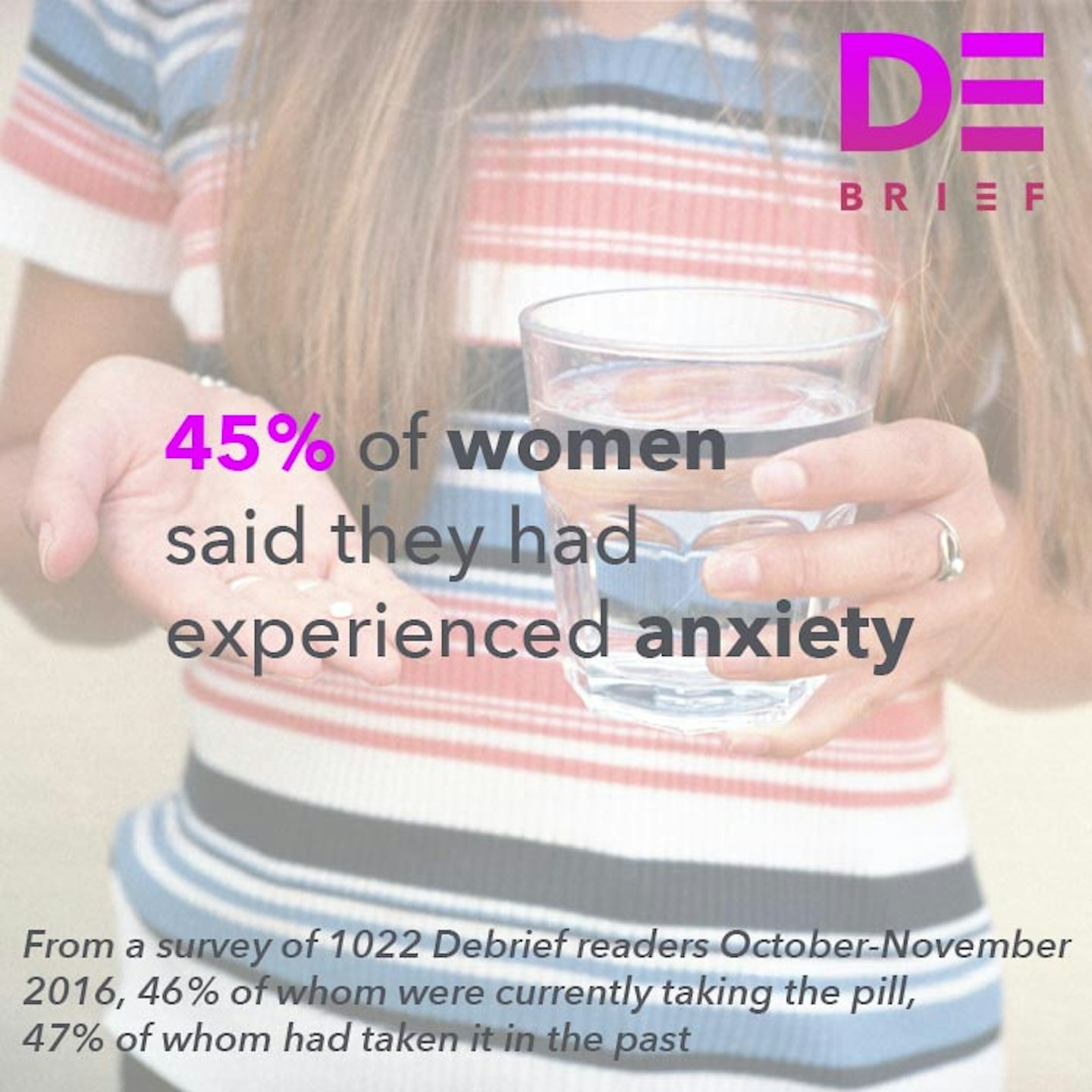 2 of 9
2 of 9Debrief Mad About The Pill Stats
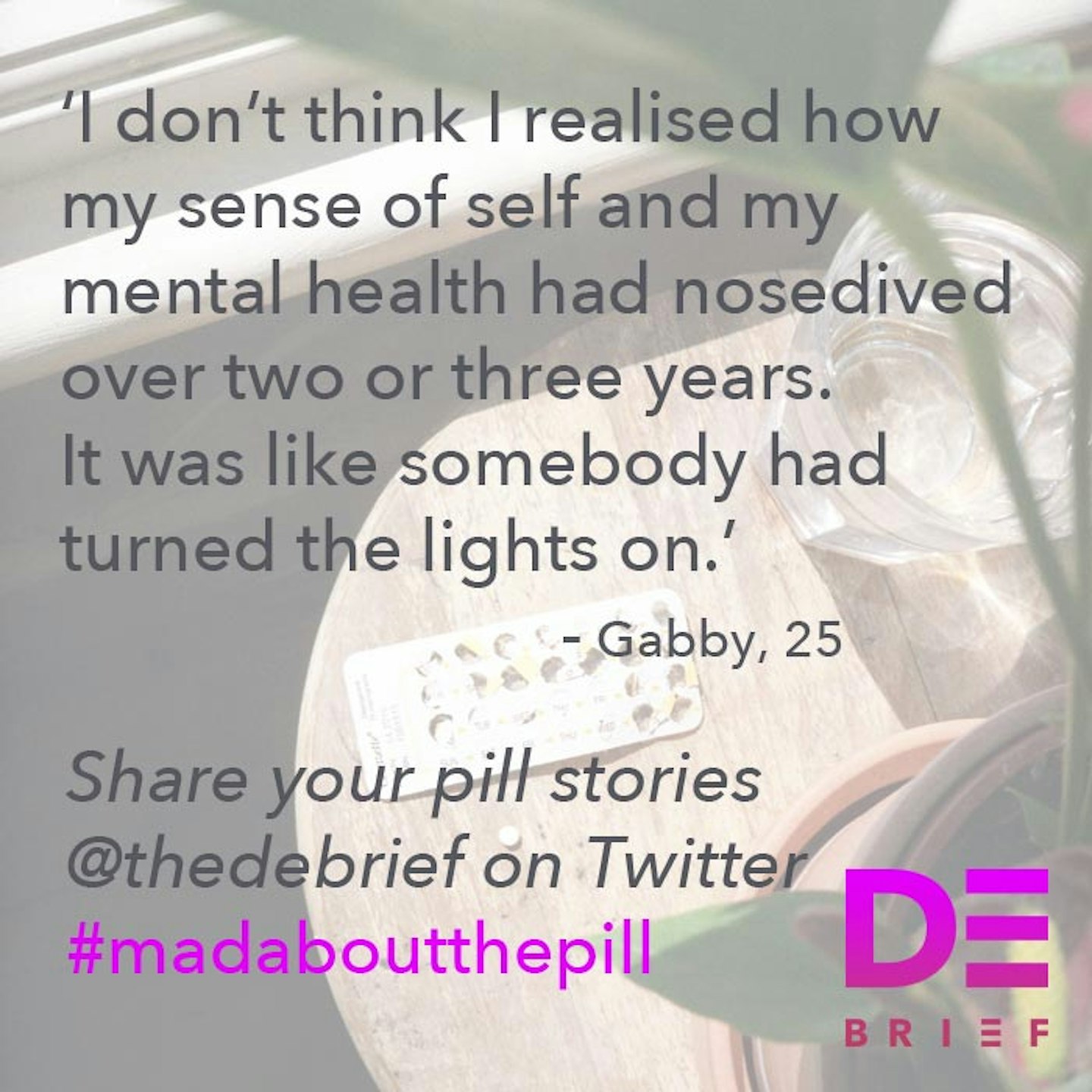 3 of 9
3 of 9Debrief Mad About The Pill Stats
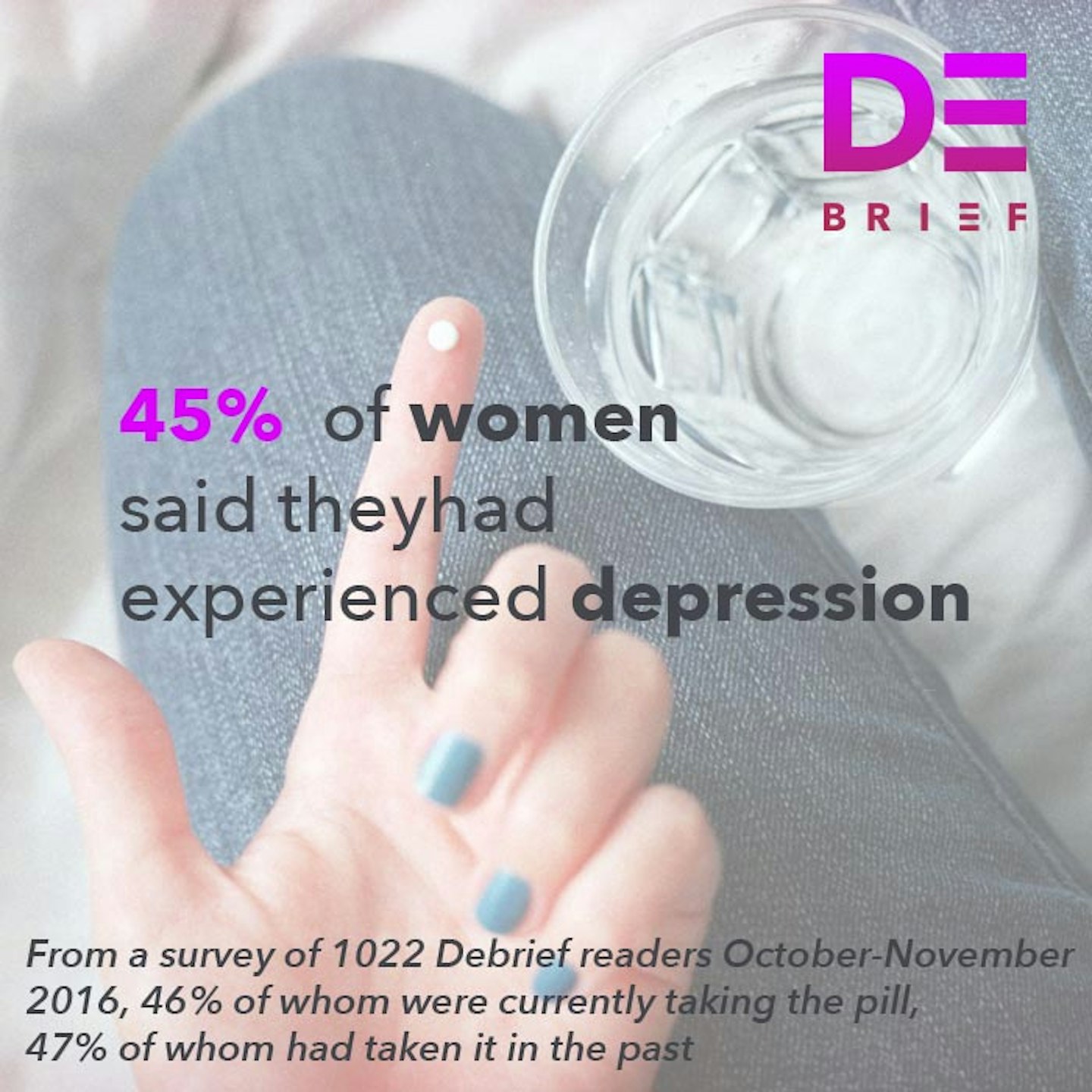 4 of 9
4 of 9Debrief Mad About The Pill Stats
 5 of 9
5 of 9Debrief Mad About The Pill Stats
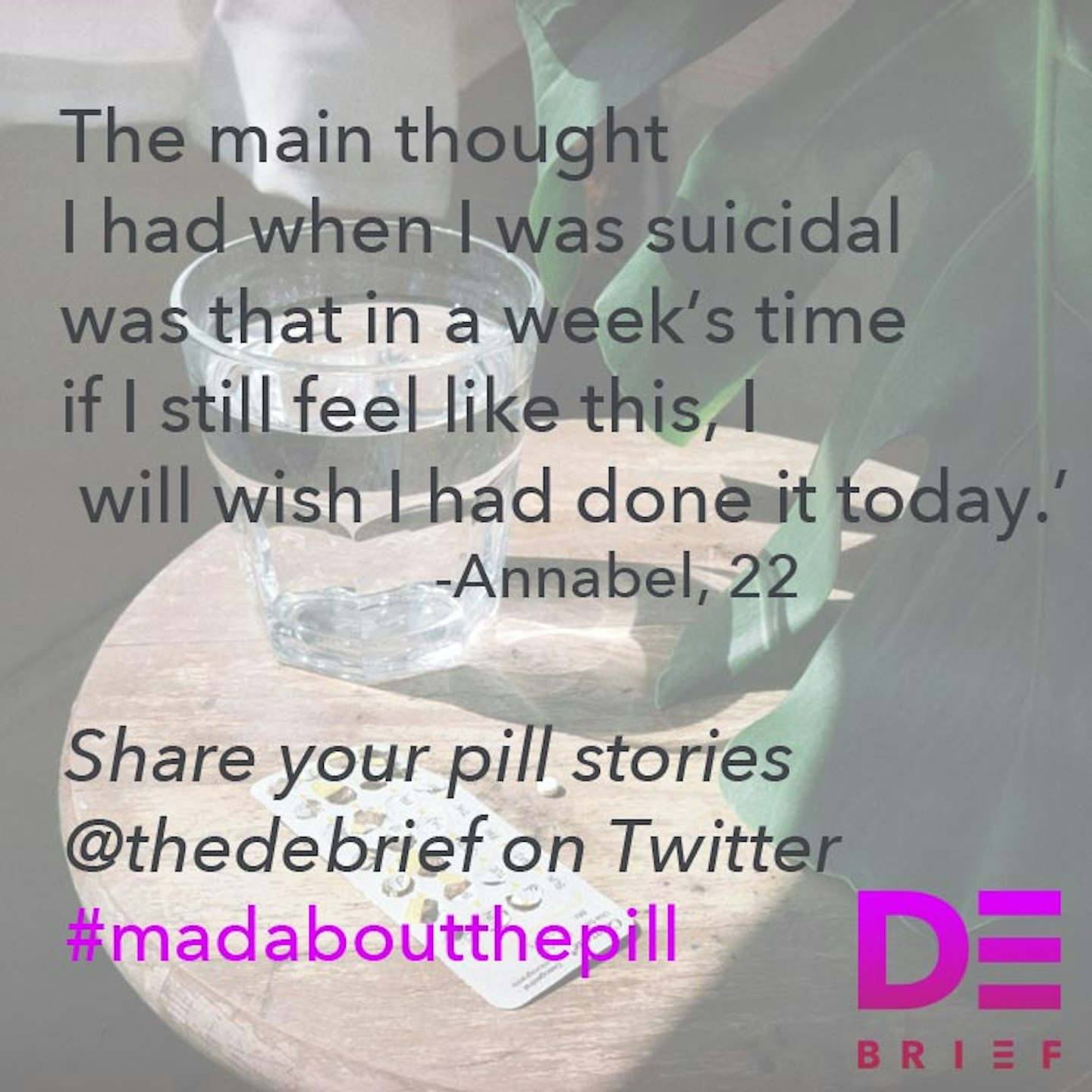 6 of 9
6 of 9Debrief Mad About The Pill Stats
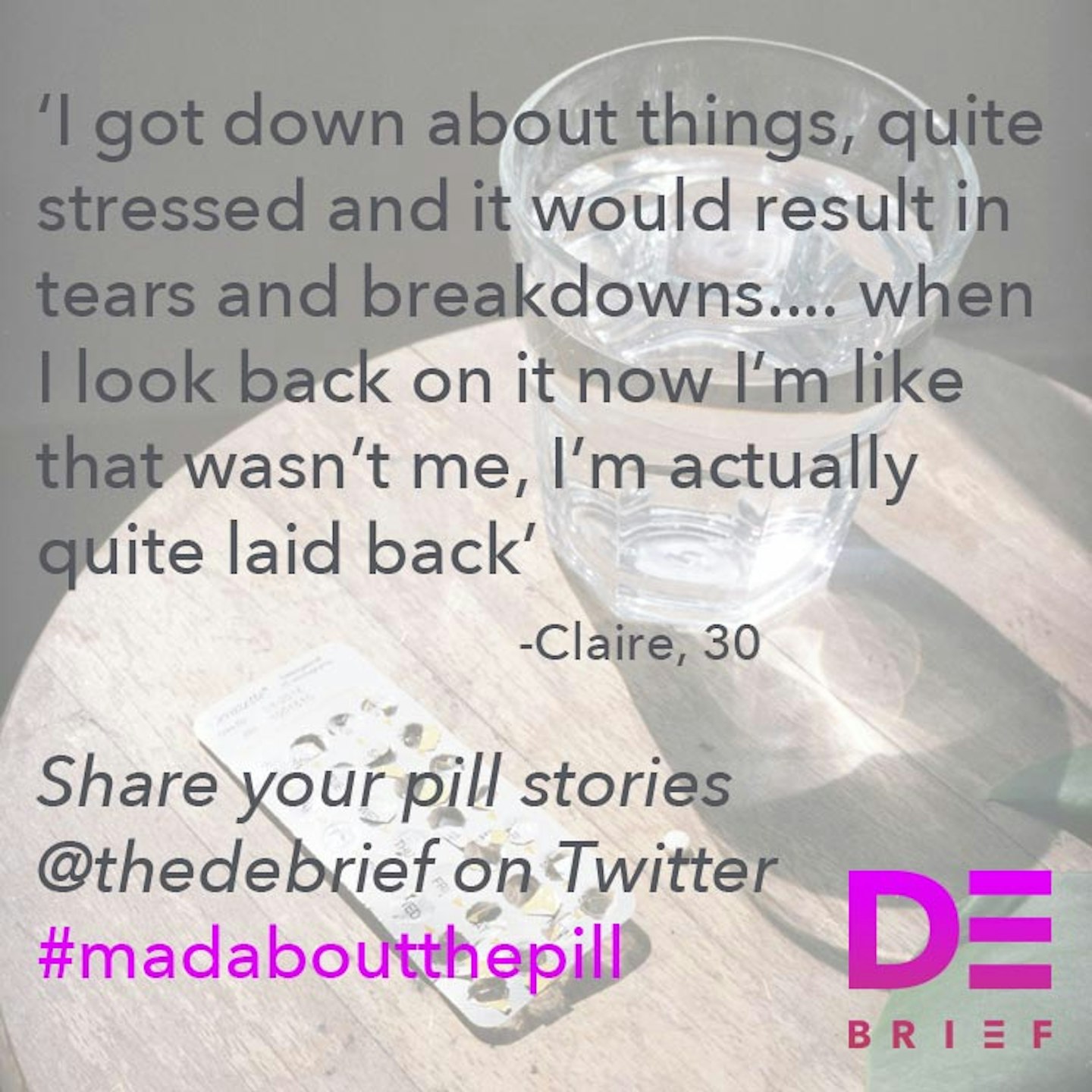 7 of 9
7 of 9Debrief Mad About The Pill Stats
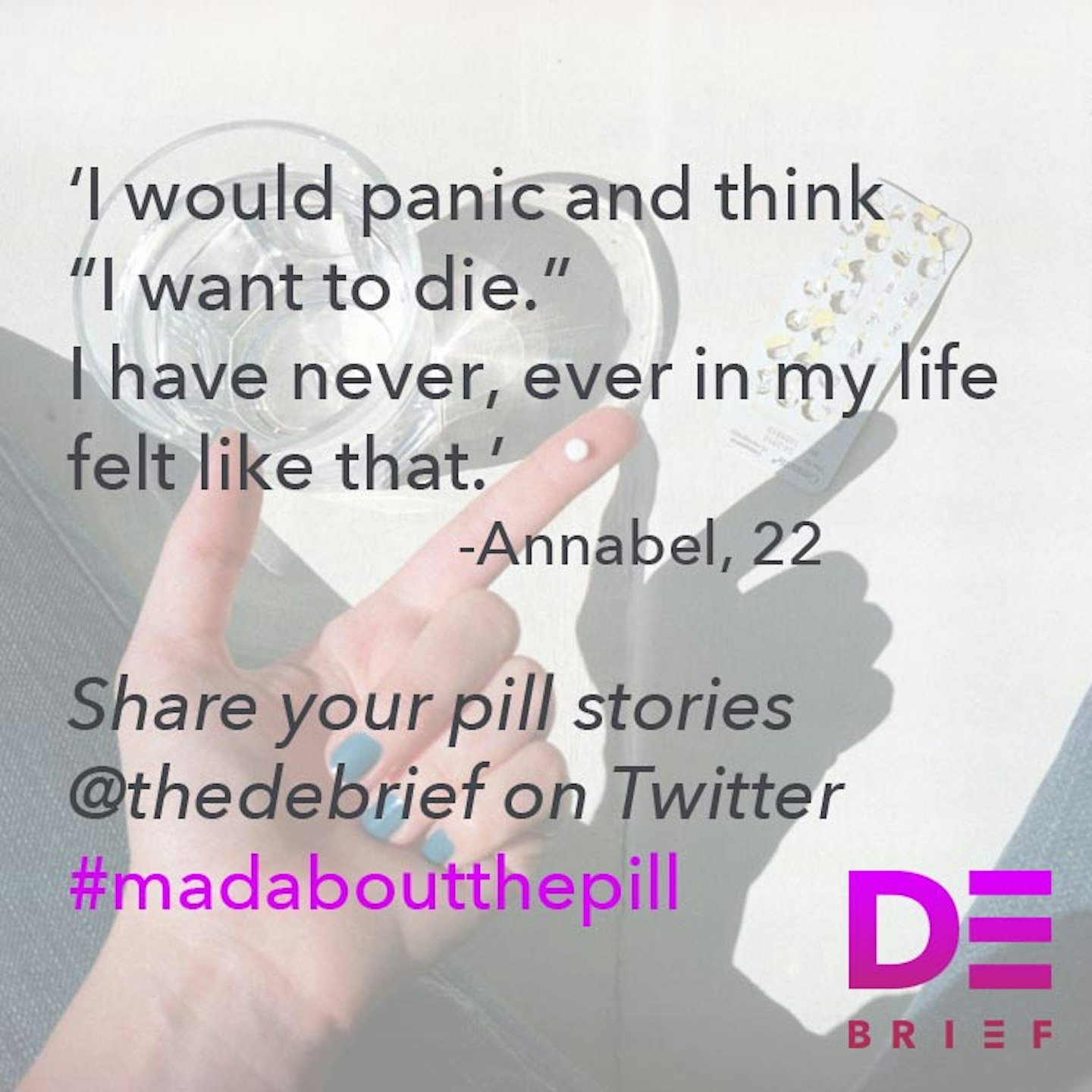 8 of 9
8 of 9Debrief Mad About The Pill Stats
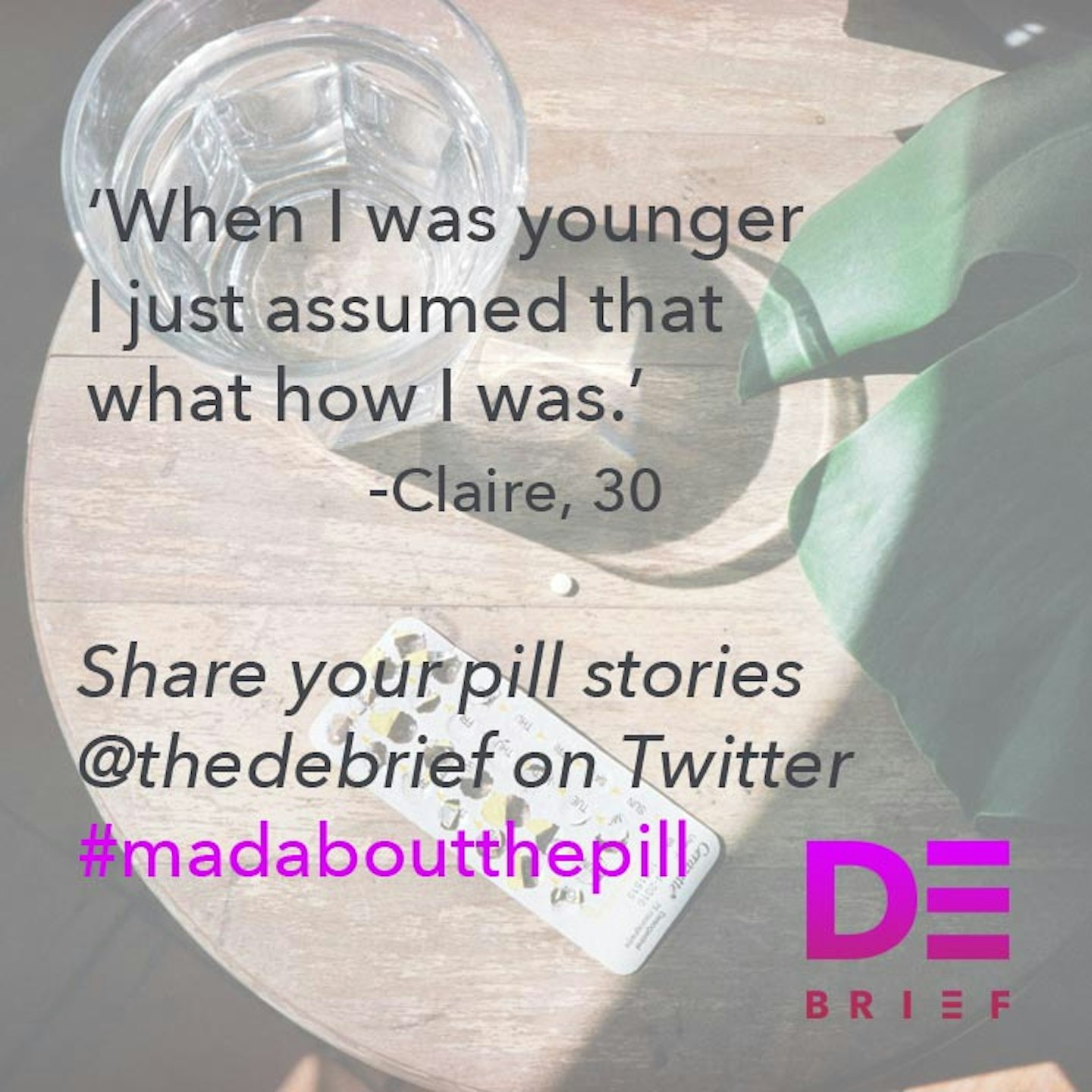 9 of 9
9 of 9Debrief Mad About The Pill Stats
As things stand, potential side effects of hormonal contraception are listed by the NHS as ‘mood changes’. As part of Mad About The Pill *The Debrief *asked The National Institute for Health and Care Excellence, who publish guidelines for healthcare professionals in England, whether they had ever developed any specific guidance on how hormonal contraception and mental health issues intersect in female patients?
Their answer was no. In a statement, they said:
‘NICE produces a range of guidance and information products, including clinical guidelines, which are recommendations on how healthcare and other professionals should care for people with specific conditions. The majority of topics for our work programmes are referred to us by the Department of Health and NHS England but occasionally other government departments such as Public Health England ask us to develop guidance on specific topics. I can confirm that we have not been asked to develop a guideline on treating patients who feel that they are experiencing mental health problems which may be caused by their hormonal contraceptive, including contraceptive pill or hormonal coil.’
If you are concerned about your pill, or hormonal contraception, please contact your GP immediatelyIf you are concerned about your pill, or hormonal contraception, please contact your GP immediately
Share your pill stories with us @thedebrief#madaboutthepill
Follow Vicky on Twitter @Victoria_Spratt
This article originally appeared on The Debrief.
